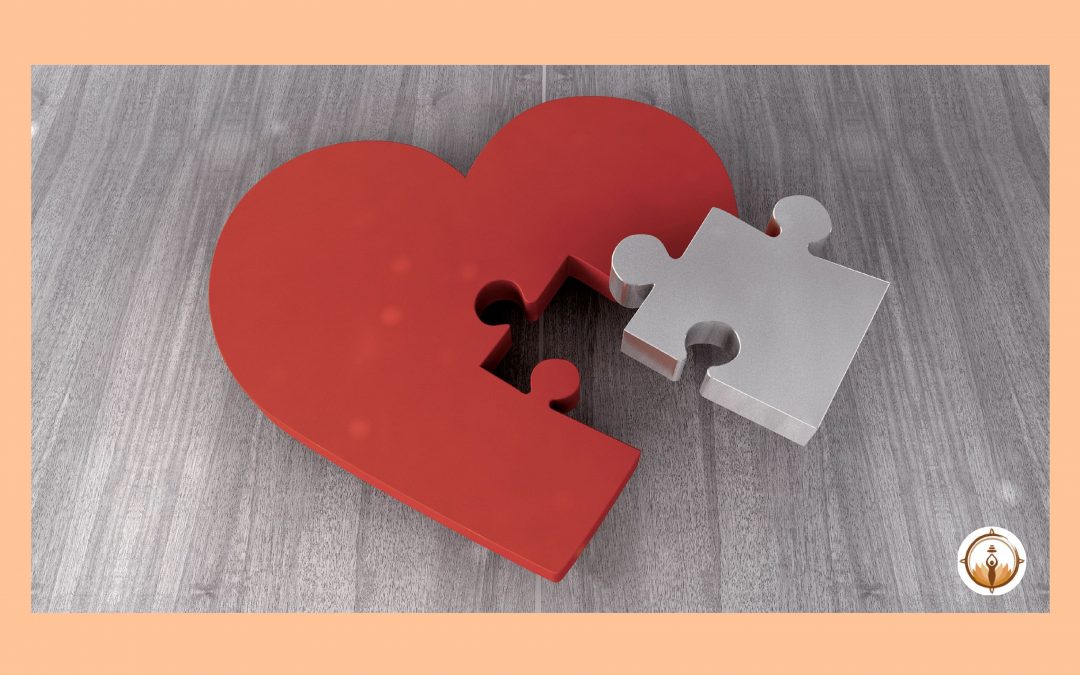Relationships can be thrilling and exciting; they bring us joy and love, and yes, as rewarding as they can be, they are also complicated and rock our boat.
Relationships work through stages; some last a lifetime or a few years, and others have a short life span. Ideally, relationships would be all smiles and smooth sailing, but the reality is they are not. Relationships need work, devotion, communication, and trust. It takes many qualities for a relationship to withstand the storm.
When a relationship comes to an end, it may be mutual, or it may catch us like a deer in headlights, leaving us shattered and baffled about what went wrong. Generally, a partner will initiate the breakup. It may take courage to admit that there is no longer a desire for the relationship to continue. For the partner broken up with, the feeling of rejection may subsequently feel worse.
Closure to a relationship is complex and overwhelming; it causes intense emotional and physical pain. Breakups are like loss and cause grief as one yearns for their lost partner. People feel abandoned, numb, and removed from daily life.

What makes us yearn for our ex?
When entering a relationship, an attachment and bond are formed with another. Partners have a rub-off effect, picking up each other’s mannerisms, thoughts, interests, and beliefs. Partners give each other a sense of security and safety. When a relationship ends, this feeling of safety is lost. It throws people out of sync and makes them vulnerable.
Understanding why we yearn for an ex is key to starting the healing journey and closing an ex’s chapter. Letting go of someone that is deeply cared for is tremendously difficult and easier said than done. We cannot merely wake up one morning and put our sadness to rest. Overcoming an ex within a certain amount of time is not guaranteed- we may feel strong on one day and on another feel we are back to square one.
Brain studies have shown that the same mechanisms in the brain present in addicts going through a withdrawal are present in those experiencing a breakup. This ‘romantic withdrawal’ seeks a fix and is fed when we think about an ex. After a breakup, we tend to blind ourselves to the challenging times and instead romanticize the fond memories which feed the withdrawal and the fixation to yearn.
How to stop yearning for an ex?
When we go through life challenges, trauma, or stress, our body and mind copes using coping mechanisms, but why is it that when we experience heartbreak, these coping strategies fail us? No rationale seems to stop us from yearning for our ex – why do we struggle to find the closure we so desperately need.
We shouldn’t sacrifice a happy future with agnawing wound. We need to take courageous and concrete steps towards healing and to stop yearning.
- Whether you foresee a friendship in the future or never want to cross paths again, it is wise to cut off communication with an ex temporarily. Protecting yourself with boundaries is good self-care, and it is perfectly ok to ask an ex to respect your space. Keeping them in your present won’t allow you to prioritize your emotional well-being.
- Stop trailing social media. Using social media makes it hard to restrain from checking in on an ex. It is important to control this urge, as it will only trigger and prolong healing.
- People often don’t yearn for the relationship they had; they yearn the relationship that they romanticized or thought they had. Don’t idolize an ex. Make a list of why that person was not compatible with you, or journal unpleasant memories. Remember, there are no ‘bad memories’; unpleasant memories are experiences that help us move forward.
- Be mindful and live in the present. Don’t encourage time traveling into the past or future. Ground yourself in the here and now and frequently remind yourself that the relationship has ended in the present.
- Don’t be misled by your mind unnecessarily searching for answers and explanations. Accepting that the relationship has ended will allow for the prospect of closure.
- The cliché “time heals all wounds” plays an integral role. Time is important when healing. Do not repress feelings; allow yourself time to feel and grieve.
- Without appropriate grieving, we may grasp onto feelings of anger and resentment, carrying them with us into the future. Grieving and recognizing feelings is necessary and therapeutic in closing a chapter.
- Just as you would attend to a wound or an injury, so you need to with a yearning heart: practice self-care and self-love. Newly freed-up time can feel daunting, but it is a silver lining for self-care.
- Invest in your personal growth, enjoy a neglected hobby, or start a new one. Instructive hobbies are great, such as rock climbing, cooking or art classes. Read a book, go for a massage or be sporty, doing physical activities are good as they release endorphins, our “happy hormones” that stimulate and keep us positive.
- Rely on loved ones for support, family and friends are excellent therapy. Speak and vent; often, somebody else will have great advice to share. It is healthy to depend on a social network. Communicating eases the confusion and loneliness when yearning for an ex. In casual social settings, avoid speaking about your past relationship.

Therapy in overcoming an ex
It is natural to have feelings of anxiety and hopelessness after experiencing a breakup. Usually, within time these feelings subside. However, we must recognize when we are being overwhelmed and no longer able to cope.
Reaching out to a therapist is a courageous and mature step in recognizing that you need to talk to someone and find solutions to move forward better. Therapists can do progressive work with individuals, giving them powerful tools to grieve and come to terms with an ex through different therapeutic methods.
EMDR therapy can be a powerful tool to help individuals overcome emotional stress and grief after an ex-relationship. For those looking for a way to move beyond their sorrow and grief, eye movement desensitization and reprocessing (EMDR) is an avenue to consider.
EMDR can create improvement by reprocessing painful memories in a relationship. The continual yearning for and resurfacing of pain is caused by the memories and reminders of an ex. EMDR helps reduce the emotional charge and intensity of challenging and painful memories that constantly resurface.
Breakups don’t need to leave us broken; they don’t have to consume us; they can build us stronger and more resilient.

